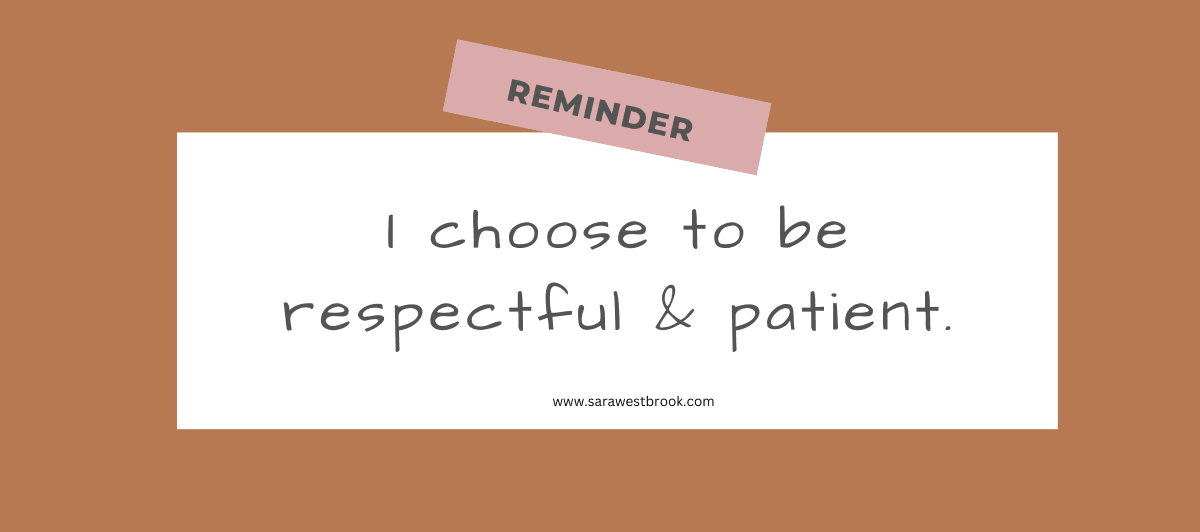
Thriving through Emotional Chaos
At times it can be difficult to remain calm and thrive through the emotional chaos you might be experiencing. Your emotions seem to be all over the place. You promise yourself you won’t let your emotions get the best of you but then they do…you make a reactive choice from your emotions.
Later regret floods your brain. You wish you had taken a breath and been more self-aware of the emotions you were feeling and handled them differently.
Sound familiar?
Since emotions fluctuate and change according to the circumstance and mood you are experiencing, emotions are not a reliable place to make all choices from.
What helps me thrive through the emotional chaos so I can remain calm in order to make choices I am proud of, is keeping my character (who I believe I am), at the forefront of my mind. I repeat, ‘I choose to be respectful and patient.’ I even have it written on post-it notes as a visual reminder 😊
I remind myself that I am allowed to feel frustrated, disappointed, angry, upset (so are you). When I take a deep breath and say, ‘Sara, it’s OK to feel that way but your character is Respect & Patience’, it actually shifts my approach. It shifts my choices.
What character traits do you want to be known for as a person?
Training yourself to be conscious of the emotions you are experiencing so that you can breathe through them to make character-based choices, is essential to making choices in the moment that you can be proud of for the moments to come.
Until next time…

